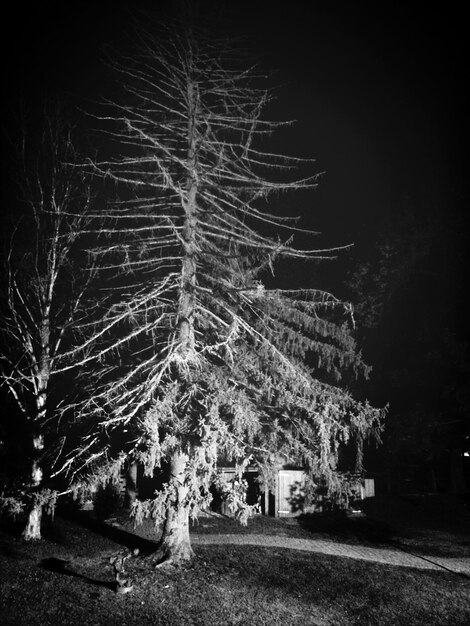Exploring the Lyrical Darkness: Black Metal’s Themes

Black metal’s lyrical themes delve into darkness, mythology, and philosophy, often exploring anti-Christian sentiments, Norse mythology, existentialism, and misanthropic views, creating a controversial and thought-provoking subgenre of metal.
Black metal’s lyrical themes: Exploring darkness, mythology, and philosophy are central to its identity, often setting it apart from other metal subgenres. This exploration encompasses diverse and often controversial subjects, ranging from anti-Christian sentiment and nihilism to Norse mythology and existential philosophy. The lyrics, frequently delivered in harsh vocals, contribute significantly to the genre’s intense and atmospheric character, inviting listeners to delve into profound and often unsettling concepts.
The Foundations of Darkness
Black metal emerged as a reaction against the perceived commercialization and stagnation of mainstream metal. One way it sought to differentiate itself was through its lyrical content. Rather than focusing solely on fantasy or personal experiences, black metal often ventured into darker, more provocative territories.
Early black metal bands laid the groundwork for many of the lyrical themes that would become hallmarks of the genre. These themes frequently challenged established societal norms and delved into the darker aspects of the human condition.
Anti-Christian Sentiments
One of the most controversial and defining features of early black metal was its open antagonism towards Christianity. This wasn’t merely a rebellious stance; it was often a deeply felt rejection of organized religion and its perceived constraints on individual freedom.
- Symbolism: Inverted crosses, desecration of churches, and blasphemous imagery became common visual and lyrical motifs.
- Historical Context: This anti-Christian stance resonated with historical narratives of pagan resistance against the spread of Christianity in Northern Europe.
- Impact: This theme helped to establish black metal as an extreme and transgressive genre, attracting both controversy and a dedicated following.
Bands like Venom and Bathory were instrumental in establishing this anti-Christian tone, paving the way for later bands to explore these themes with even greater intensity and artistic depth.

Mythology and Paganism
Beyond mere rejection of Christianity, black metal often embraced pre-Christian mythologies and pagan beliefs, particularly those of Northern Europe. This fascination with ancient cultures provided an alternative spiritual and philosophical framework, rich with symbolism and narratives of strength, nature, and the cyclical nature of existence.
Norse mythology, with its pantheon of powerful gods, epic battles, and tales of creation and destruction, became a major source of inspiration for many black metal bands.
Norse Mythology
The sagas and eddas of Norse mythology provided a vast and compelling source of lyrical content. These tales offered a vision of a world governed by primal forces, where gods and humans alike were subject to fate and the relentless march of time.
- Odin: The Allfather, representing wisdom, magic, and war, often appears as a figure of reverence and power.
- Thor: The god of thunder, strength, and protection, embodies the raw force of nature.
- Ragnarok: The apocalyptic end of the world in Norse mythology, symbolizing inevitable destruction and renewal.
These mythological themes allowed bands to explore concepts of heroism, sacrifice, and the eternal struggle between order and chaos, adding depth and complexity to their music.
Moreover, the embrace of Norse mythology served as a way to reconnect with ancestral roots and celebrate the cultural heritage of Northern Europe, providing a sense of identity and belonging.
Nature and the Wilderness
Another prominent theme in black metal is the reverence for nature, particularly the harsh and untamed landscapes of Scandinavia. This appreciation for the natural world often manifests as a rejection of urban life and a longing for a more primal existence.
The vast forests, towering mountains, and icy fjords of Northern Europe become powerful symbols of freedom, resilience, and the enduring power of nature.
Landscapes as Metaphors
In black metal lyrics, landscapes are rarely just backdrops; they are often imbued with symbolic meaning, reflecting the inner turmoil and spiritual journeys of the individual.
The imagery of desolate landscapes contributes to the overall atmosphere of isolation and misanthropy that is prevalent in much of the genre.
- Forests: Representing the unknown, the untamed, and the spiritual realm.
- Mountains: Symbolizing strength, resilience, and the triumph over adversity.
- Winter: Reflecting themes of death, decay, and the cyclical nature of life.
This connection to nature provides a grounding element in the often abstract and philosophical themes explored in black metal, reminding listeners of the raw and unforgiving reality of the natural world.
The celebration of nature can also be seen as a form of environmentalism, albeit one expressed through a lens of darkness and misanthropy. It highlights the importance of preserving the natural world and resisting the encroachment of modernity.
Existentialism and Nihilism
Black metal lyrics often delve into profound philosophical questions about the nature of existence, the meaning of life, and the inevitability of death. These explorations are often rooted in existentialist and nihilistic philosophies, questioning the validity of traditional values and beliefs.
Existentialism, with its emphasis on individual freedom and responsibility, resonates with the rebellious spirit of black metal. It encourages individuals to create their own meaning in a world devoid of inherent purpose.
Confronting the Absurd
Many black metal bands confront the absurdity of existence head-on, rejecting the notion of a benevolent God or a predetermined path. This can lead to feelings of disillusionment, despair, and even rage.
- Meaninglessness: The realization that life has no inherent meaning can be both terrifying and liberating.
- Freedom: The individual is free to create their own values and live according to their own will.
- Responsibility: With freedom comes the responsibility to make choices and accept the consequences.
By exploring these existential themes, black metal challenges listeners to confront their own beliefs and grapple with the fundamental questions of human existence.
Nihilism, with its rejection of all values and beliefs, can also be found in black metal lyrics, particularly in those that express a deep sense of misanthropy and contempt for humanity.

Misanthropy and Social Critique
A pervasive theme in black metal is misanthropy, the hatred or disdain for humanity. This sentiment often stems from a deep disillusionment with society, its values, and its destructive tendencies. Misanthropy in black metal is not merely a personal feeling; it often serves as a critique of human behavior and its impact on the world.
Black metal bands frequently express their misanthropic views through lyrics that condemn human greed, corruption, and the destruction of the natural environment.
Critique of Modern Society
Misanthropic lyrics often target the perceived ills of modern society, such as consumerism, conformity, and the loss of connection to nature. These critiques are often delivered with scathing intensity and a sense of moral outrage.
By expressing these sentiments, black metal bands aim to provoke critical thinking and challenge listeners to question the values of the society in which they live.
- Consumerism: Condemnation of the relentless pursuit of material possessions.
- Conformity: Rejection of societal pressures to conform and obey.
- Environmental Destruction: Criticism of human actions that harm the natural world.
The misanthropic themes in black metal can be seen as a form of extreme social commentary, expressing a profound dissatisfaction with the state of humanity and its future.
However, it is important to recognize that misanthropy in black metal is not always a literal call for violence or destruction. It is often a symbolic expression of anger, frustration, and a desire for profound change.
The Evolution of Lyrical Themes
Over the years, the lyrical themes in black metal have evolved and diversified, reflecting the changing interests and perspectives of the artists involved. While the core themes of darkness, mythology, and misanthropy remain prevalent, they have been explored in increasingly nuanced and sophisticated ways.
Some bands have delved deeper into philosophical and esoteric subjects, drawing inspiration from sources such as occultism, mysticism, and ancient texts.
Modern Interpretations
Contemporary black metal bands continue to push the boundaries of the genre, both musically and lyrically. They often incorporate elements from other genres, such as classical music, folk music, and even electronic music, creating a diverse and ever-evolving sound.
The lyrics in modern black metal often explore more personal and introspective themes, reflecting the individual experiences and struggles of the artists.
- Personal Turmoil: Addressing themes of depression, anxiety, and loss.
- Social Issues: Exploring contemporary issues such as political corruption, social injustice, and environmental degradation.
- Experimental Approaches: Incorporating unconventional literary techniques and linguistic experimentation.
This evolution of lyrical themes ensures that black metal remains a relevant and thought-provoking genre, capable of engaging with the complexities of the modern world.
The development of lyrical themes within black metal demonstrate the genre’s ability to adapt and evolve while preserving its core essence.
| Key Point | Brief Description |
|---|---|
| 🤘 Anti-Christianity | Rejection of Christian values and institutions. |
| 🌲 Norse Mythology | Inspiration from Norse gods, sagas, and legends. |
| 💀 Existentialism | Exploration of life’s meaning, freedom, and responsibility. |
| 😠 Misanthropy | Critique of humanity and its destructive tendencies. |
FAQ
▼
Black metal primarily explores themes of darkness, mythology (especially Norse), existentialism, and misanthropy. It often includes anti-Christian sentiment and reflections on nature.
▼
Norse mythology provides a rich source of inspiration with its epic tales of gods, battles, and the cyclical nature of life, resonating with the genre’s dark and powerful aesthetic.
▼
Existentialism informs black metal by questioning the meaning of life, emphasizing individual freedom, and confronting the inherent absurdity of existence, leading to themes of disillusionment.
▼
Misanthropy serves as a critique of humanity’s greed, corruption, and environmental destruction. It expresses dissatisfaction with society and its values, often delivered with intense emotional force.
▼
While maintaining core themes, black metal has broadened to include personal turmoil, social issues, and philosophical inquiries from occultism to environmental concerns, ensuring the genre remains relevant.
Conclusion
In conclusion, the lyrical themes of black metal’s lyrical themes: Exploring darkness, mythology, and philosophy form a complex and multifaceted landscape. From its early roots in anti-Christian sentiment and Norse mythology to its later explorations of existentialism, misanthropy, and social critique, black metal has consistently challenged listeners to confront profound and often unsettling ideas. Despite its controversial nature, the genre remains a powerful and influential force in the world of metal music, continuing to evolve and adapt while preserving its unique and distinctive identity.





